Search
Did you mean: Zheng Yi?
Search Results

Image
A Female Pirate Based on Zheng Yi Sao
Takayo Fischer, Hakeem Kae-Kazim, and Ghassan Massoud in Pirates of the Caribbean: At World's End (2007). The character Mistress Ching is likely based on the famed pirate chief Zheng Yi Sao (d. 1844), widow of Zheng Yi. © Walt Disney Pictures...
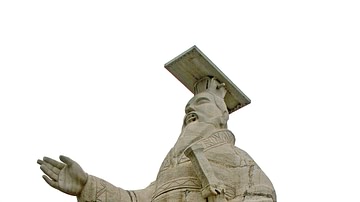
Definition
Shi Huangdi
Shi Huangdi (l.259-210 BCE/r.221-210 BCE, also known as Qin Shi Huang, Qin Shih Huandi, Shi Huangti or Shih Huan-ti) was the first emperor of a unified China. Shi Huangdi means `First Emperor' and is a title, not a proper name. The Qin Dynasty...
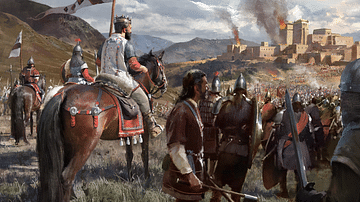
Definition
Warfare
Warfare is generally understood to be the controlled and systematic waging of armed conflict between sovereign nations or states, using military might and strategy, until one opponent is defeated on the field or sues for peace in the face...

Definition
Ancient China
Ancient China produced what has become the oldest extant culture in the world. The name 'China' comes from the Sanskrit Cina (derived from the name of the Chinese Qin Dynasty, pronounced 'Chin') which was translated as 'Cin' by the Persians...
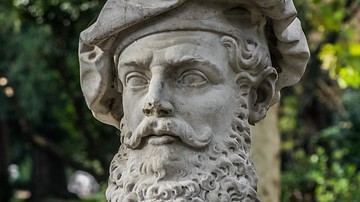
Definition
Marco Polo
Marco Polo (1254-1324 CE) was a Venetian merchant and explorer who travelled to China and served the Mongol ruler Kublai Khan (l. 1214-1294 CE) between c. 1275 and 1292 CE. Polo's adventures are recounted in his own writings, The Travels...
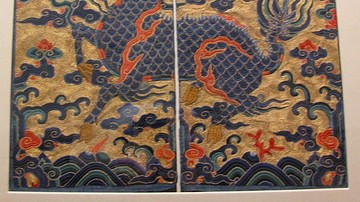
Definition
Qilin (Chinese Unicorn)
The qilin (麒麟, or simply lin 麟) is a Chinese mythical creature, frequently translated as "Chinese unicorn." While this term may suggest a one-horned creature, the qilin is often depicted with two horns. However, like the Western unicorn...
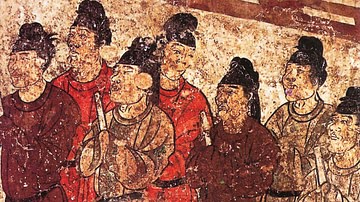
Article
Eunuchs in Ancient China
Eunuchs were powerful political players in ancient Chinese government. Originating as trusted slaves in the royal household they were ambitious to use their favoured position to gain political power. Advising the emperor from within the palace...
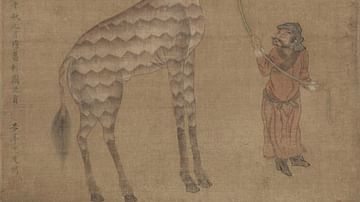
Image
Giraffe Tribute to Emperor Yongle
A silk scroll painting by Shen Du depicting a giraffe given in tribute by King Saif Al-Din Hamzah Shah of Bengal to the Yongle Emperor (r. 1403-1424 CE) of China's Ming Dynasty. The tribute was one of the many collected by Admiral Zheng He...
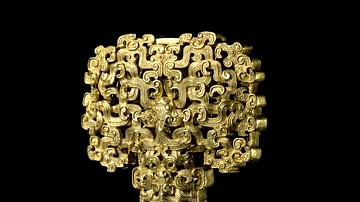
Definition
Zhou Dynasty
The Zhou Dynasty (1046-256 BCE) was among the most culturally significant of the early Chinese dynasties and the longest lasting of any in China's history, divided into two periods: Western Zhou (1046-771 BCE) and Eastern Zhou (771-256 BCE...

Definition
Qin Dynasty
The Qin Dynasty (221-206 BCE) was the first dynasty of Imperial China (defined as the era of centralized, dynastic government in China between 221 BCE and 1912 CE) which united the separate states following the Warring States Period (c. 481-221...